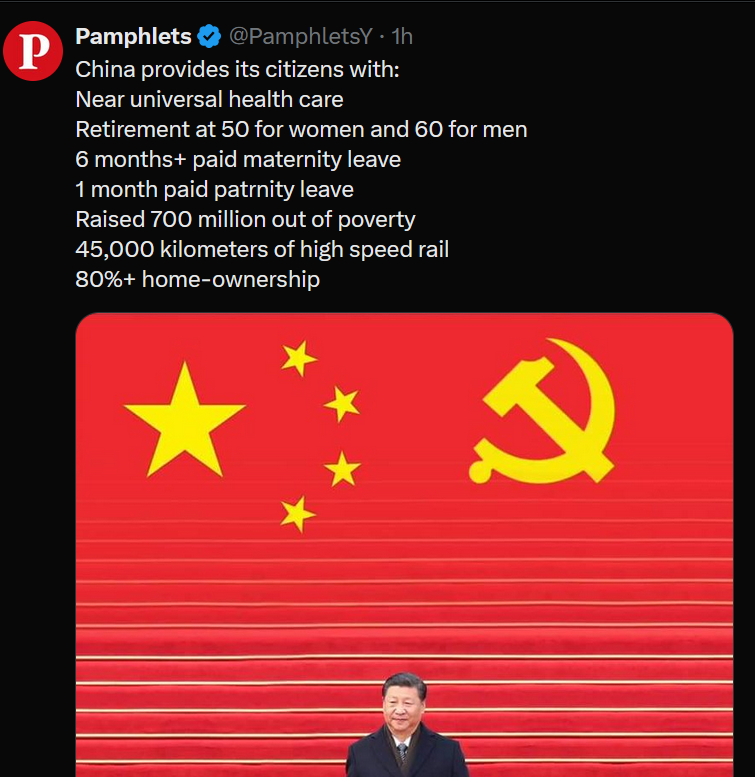46
you are viewing a single comment's thread
view the rest of the comments
view the rest of the comments
this post was submitted on 26 Mar 2024
46 points (94.2% liked)
Ask Lemmygrad
801 readers
29 users here now
A place to ask questions of Lemmygrad's best and brightest
founded 2 years ago
MODERATORS

If we look at the biggest neoliberal hellhole, the USA, things got worse there at the time of the Reagan presidency, which started in 1981. That's actually when neoliberalism entered the vocabulary as a word. It was also around the time of Perestroika and other liberal reforms in the USSR.
But we have to remember that in the first years of Deng up until recently under Xi, China was seen as a flawed capitalist country. The West sincerely though this, and thought they could "improve" their democracy.
In that sense there was nothing to be inspired from. Our media saw China as just another capitalist hellhole, even worse than ours in fact. Their "sweatshops" -- factories in which manual labor was performed (which is demeaning to the westerner) -- were not something our proletariat wanted to emulate for themselves. We were very happy in fact to offload our production there because to the capitalist, it kept costs low and to the proletariat, it kept prices low.
I think the USSR shook things in the early days, in the days where there was a real risk of the revolution inspiring movements in the rest of Europe. After that, it was mostly business as usual.
My grandparents, who worked in the mid-century, did not have conditions as good as we have them today -- for the most part. So I don't think it's universal or so uncontested (although I still like using the argument because it makes non-communists think about their conditions) that the USSR is what gave us labor rights. At least, like I said, after the early years of the revolution.
Definitely though the Marshall Plan was the perfect opportunity to not give the Soviets any popularity points in Europe, but the implications of it went further than just preventing communism. It also cemented the USA as the imperial hegemon (I guess that's also part of trying to prevent communism if you wanna look at it that way). But by then Europe already had healthcare and some other social programs, most countries got those before the war.